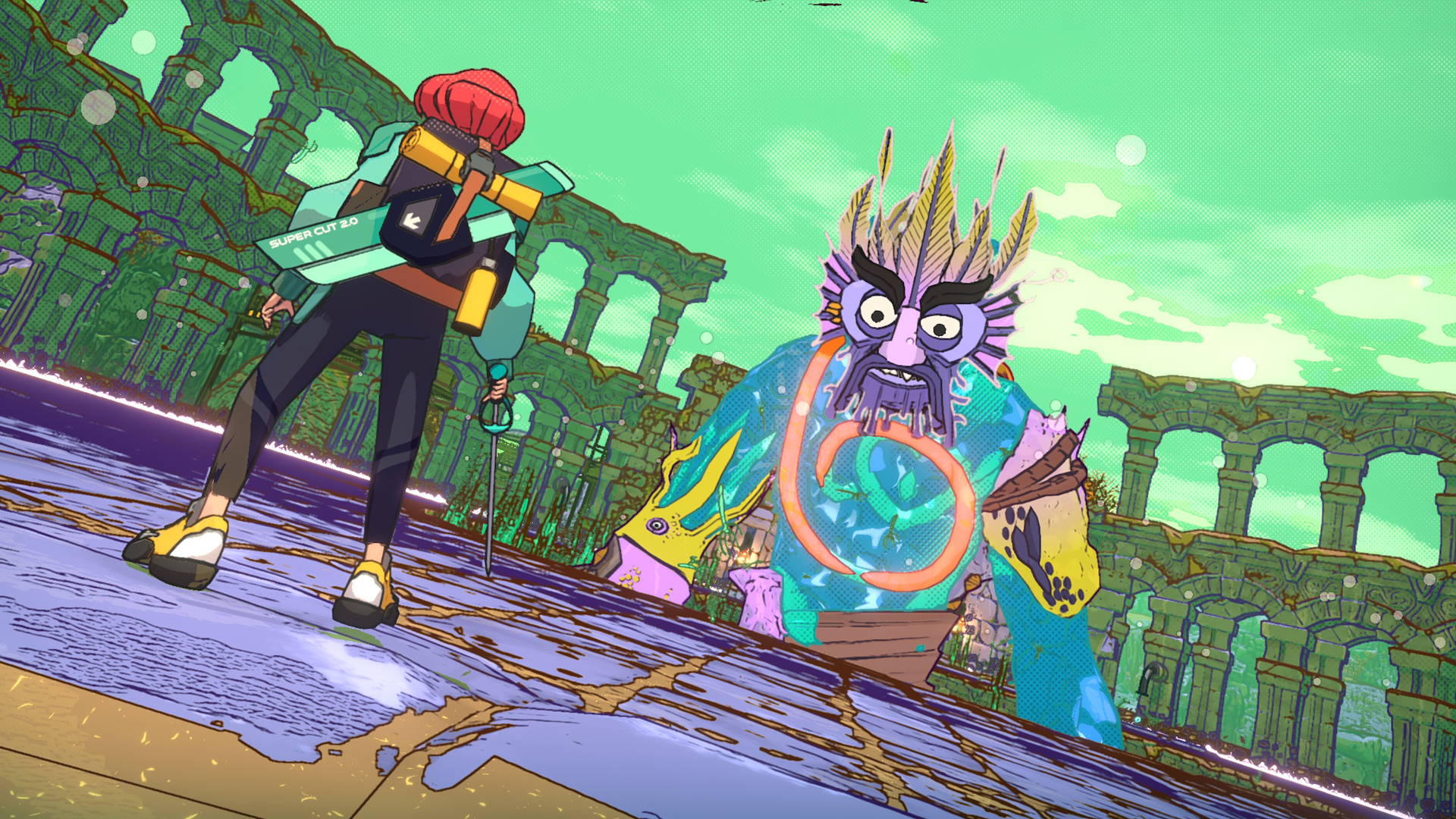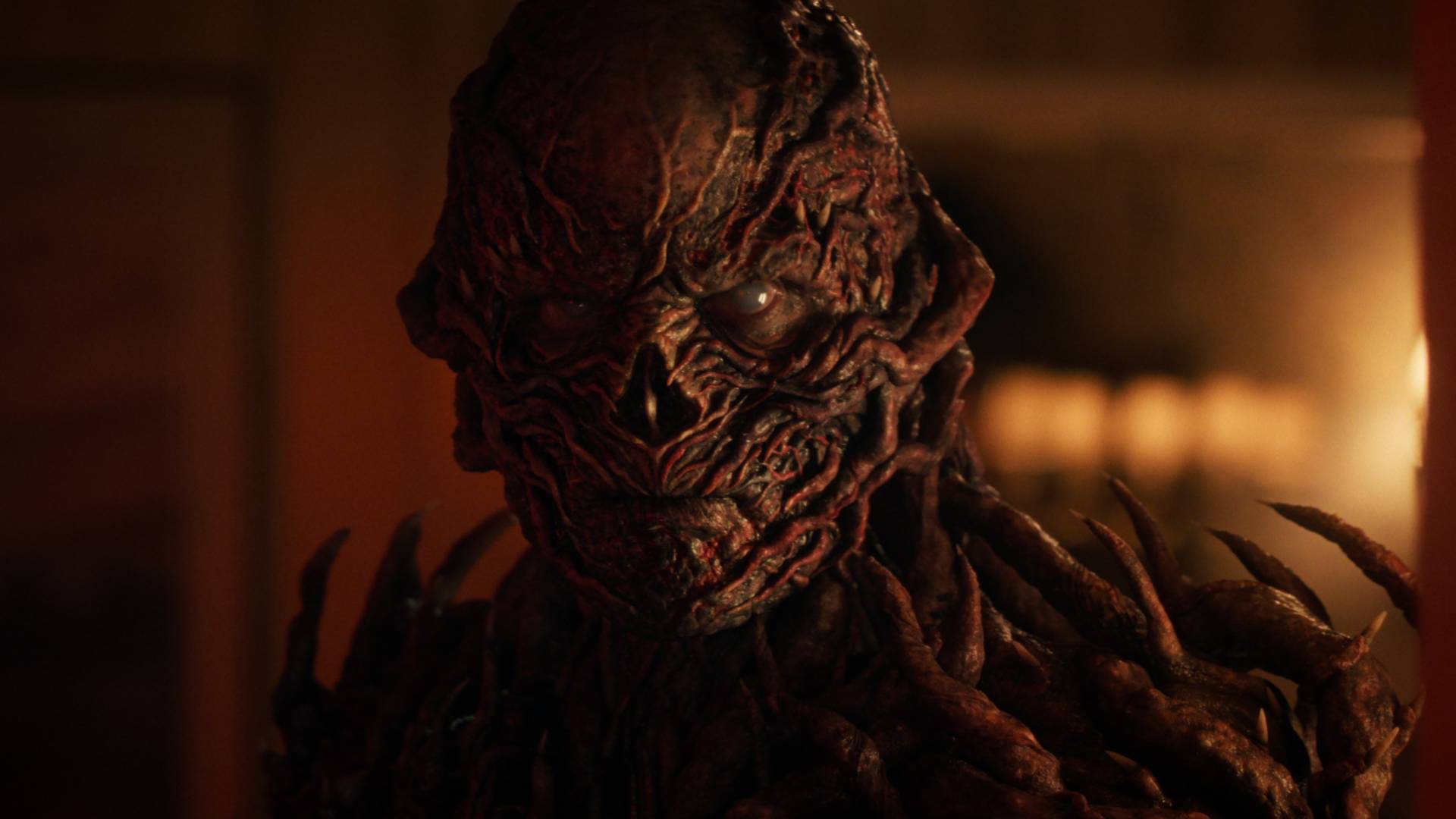GamesRadar+ Verdict
Dungeons of Hinterberg is a charming, photogenic puzzle game that pairs radical fights and platforming action with delightful moments of peaceful reflection. There's a constant challenge and a feeling of forward motion through a well-paced narrative with a meaningful message.
Pros
- +
Balanced gameplay that never feels stale
- +
Gripping and well-paced
- +
Unique approach to RPG stats
Cons
- -
Might feel hand-holdy for pro puzzlers
- -
Transactional incentives undermine message
Why you can trust GamesRadar+
Dungeons of Hinterberg is a dungeon crawler, of course, but the devs at Microbird Games have designed something so much more than that. It's a clever combination of intricate brain teasers, boss battles, and wild chase scenes, all interspersed with moments of peace, pals, and partying. Echoing elements from games like Persona, Nier, and Ni no Kuni, Dungeons of Hinterberg puts its own unique twist on the RPG genre. There's a sprinkling of Bastion-style battle segments, Kingdom Hearts-level moral lessons, with nods to all the great puzzle games. And that's barely scratching the surface.
The story follows Luisa, a burnt-out junior lawyer on a holiday escape to a remote Alpine village. Here you'll get up to everything you'd expect from a mountain holiday. Plus the only thing there is to do when the work grind gets too intense: we slay. No, really. The entire village is a tourist hotspot built around clearing some 25 dungeons that suddenly manifested there one day. Slay your way through them, and you'll be rewarded with a full spread of stamps in your journal – just like a Japanese stamp rally.
The aim is to relax between each dungeon, but in your attempts to reclaim your childlike wonder and learn to switch off from the rat race, you'll learn there's more to this sleepy slaying town than the brochure lets on. Between intermittent earthquakes, ghoulish nighttime visits, and politicians acting strangely, there's a host of threads to follow. And outside of the many mysteries, there's plenty to get involved with on your trip.
When you're not getting autographs from influencers, cozying up to chat about dungeon fashion around the firepit, or sitting serenely beside a mountain lake, you're upgrading weapons and armor, blundering about on minecarts, and discovering new and ever more delightful ways to wield your newfound magic powers.
What's on in Hinterberg
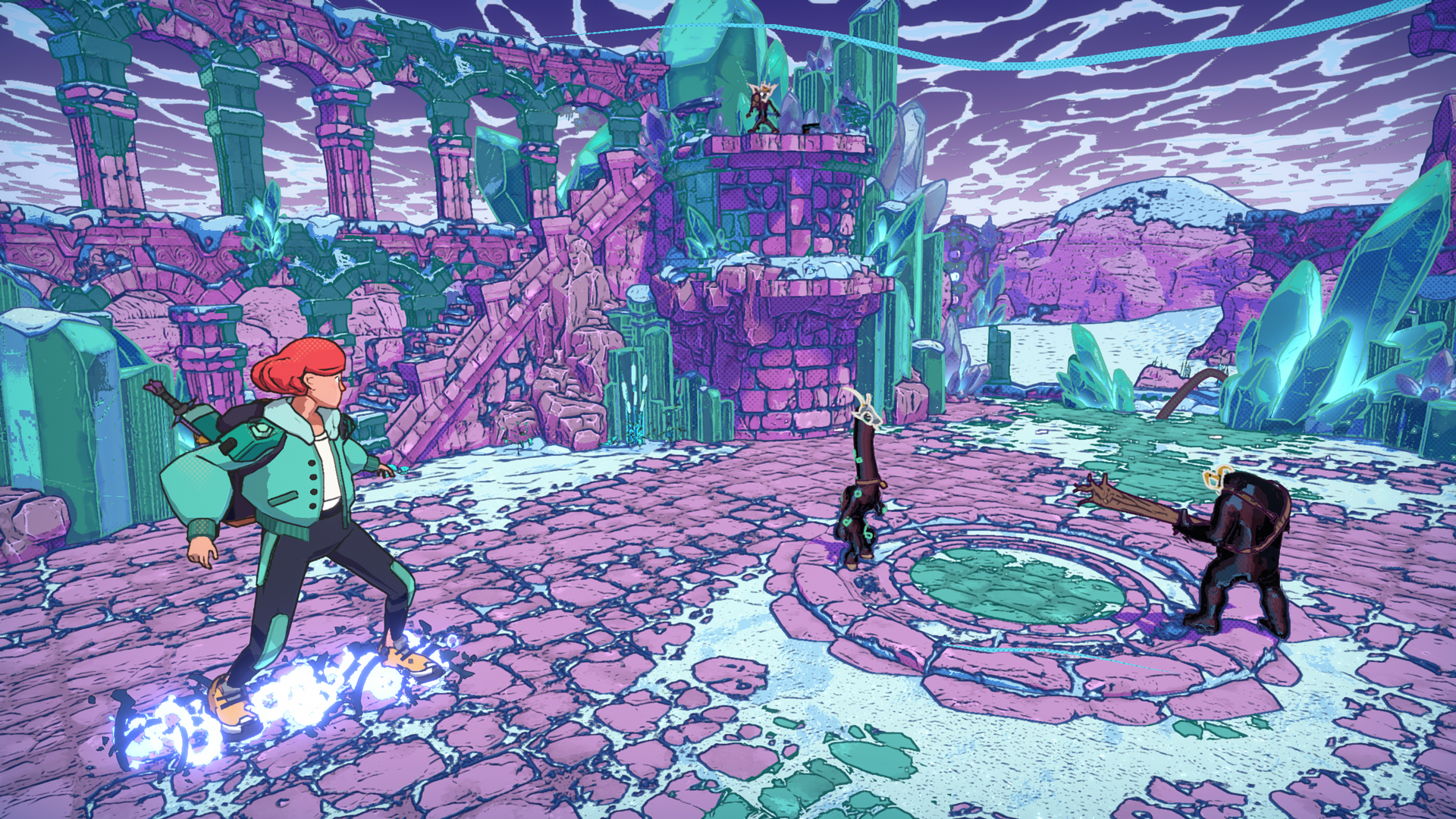
Release date: July 18, 2024
Platform(s): PC, Xbox Series X
Developer: Microbird Games
Publisher: Curve Games
Every morning, Luisa wakes up to breakfast at her hotel and decides which biome she'll tackle for the day. You pick a destination and time auto advances as you're shuttled off to visit the forest for some treetop platforming, the mountaintop for some thrilling dexterity games, or the marsh for a spot of kayaking.
Each of the game's biomes has its own distinct aesthetic, challenges, and encounters, with the dungeons helpfully separated into distinct tiers, numbered relative to your defense rating, so you know how equipped you are to face them. Higher-tier dungeons are inaccessible until the late game, which means you're forced to master certain mechanics before slipping straight into the difficult puzzles with no training. Some dungeons are hidden altogether, to be discovered as Hinterberg's secrets reveal themselves to you – including a dungeon quest that will, importantly, let you pet the dog.
Before you enter any dungeons, you have to collect your duo of spells from the shrine, which can be used only in the biome in which they were obtained. It's a neat way to keep each area fresh, and prevents you feeling overwhelmed by too many potential spell combos. It might feel simplistic for anyone used to playing your average MMO, for example, but this magic is for more than just fighting.
Weekly digests, tales from the communities you love, and more
We're talking highly specialized spells that are integral to the puzzle-solving process. Since Luisa is unable to jump (I'm trying not to dock the score for this), you'll need to use your whirlwind spell to whisk yourself up onto a high ledge. There's a gelatinous cube spell that can both incapacitate enemies and push open a portcullis. And I have to say, there's something pretty rad about lightning boarding across a snow-capped mountain top into a great colosseum to challenge the Kobold King and his minions.
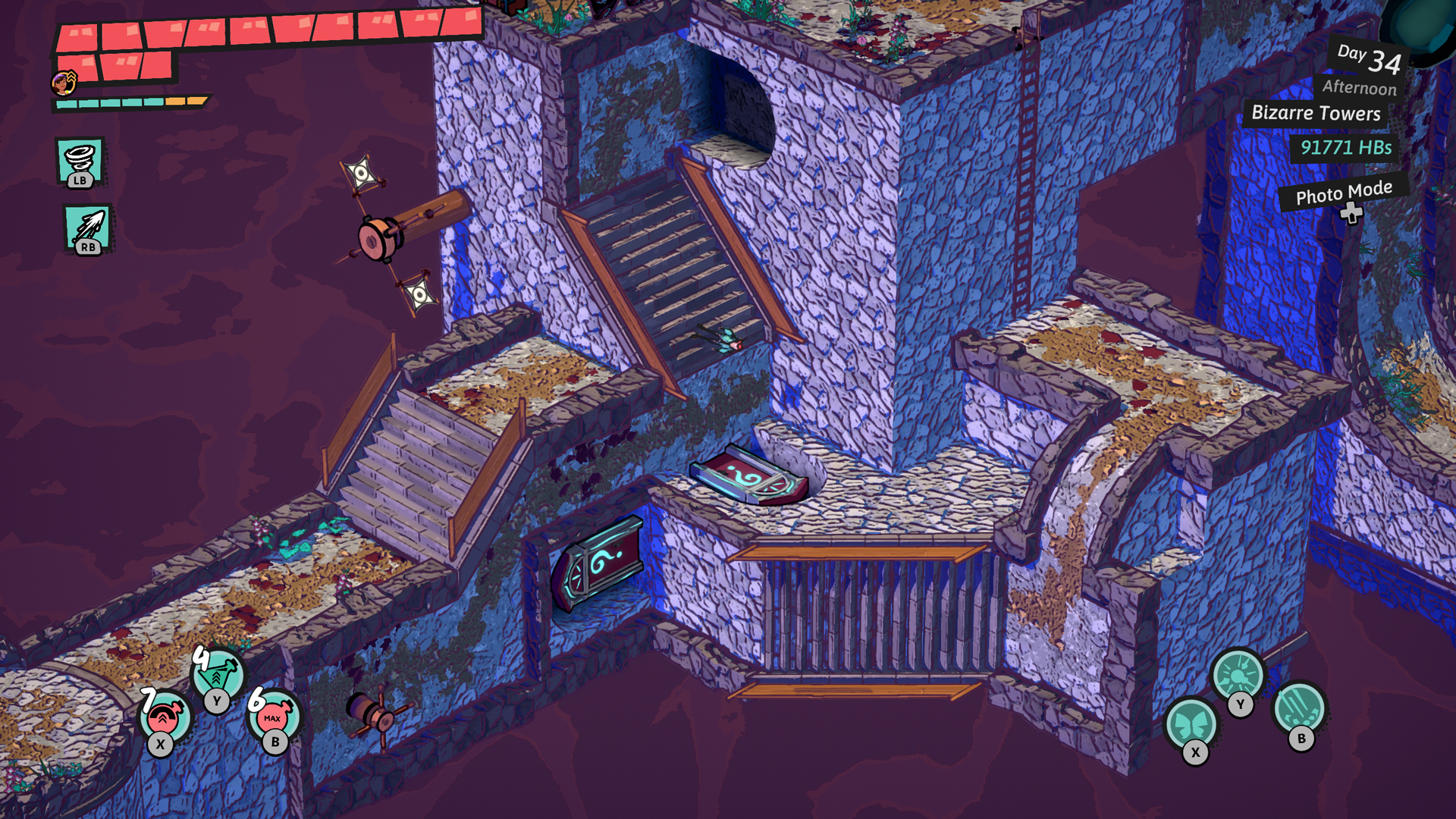
Every one of Dungeons of Hinterberg's dungeons presents a new challenge. As you slay your way across the biomes, taking on epic folkloric bosses, you'll be faced with a series of puzzles that steadily increase in difficulty. The game manages to drip-feed you new ways to utilise your skills so you're always prepared for what's to come.
It all feels so supremely well paced as it builds up into an epic crescendo that lets you revel in your new level of magic mastery. And while some of the puzzles do drag, they never feel stale. No two layouts are the same, and everything is clearly telegraphed with distinct iconography and color coding so you don't end up backtracking.
I'm usually terrible at puzzle games, but the artful way the designers have laid out each dungeon – gently nudging me through puzzles with a trail of glowing breadcrumbs – means I'm never far from spotting the next solution. This approach has the potential to feel a little hand-holdy, but whether it's fast-paced dexterity puzzles, Monument Valley-style rotating architectural mazes, Simon Says-alike memory games, or pipe connect puzzles, I guarantee there's something here to challenge even the most elite puzzle game enthusiasts.
One day at a time
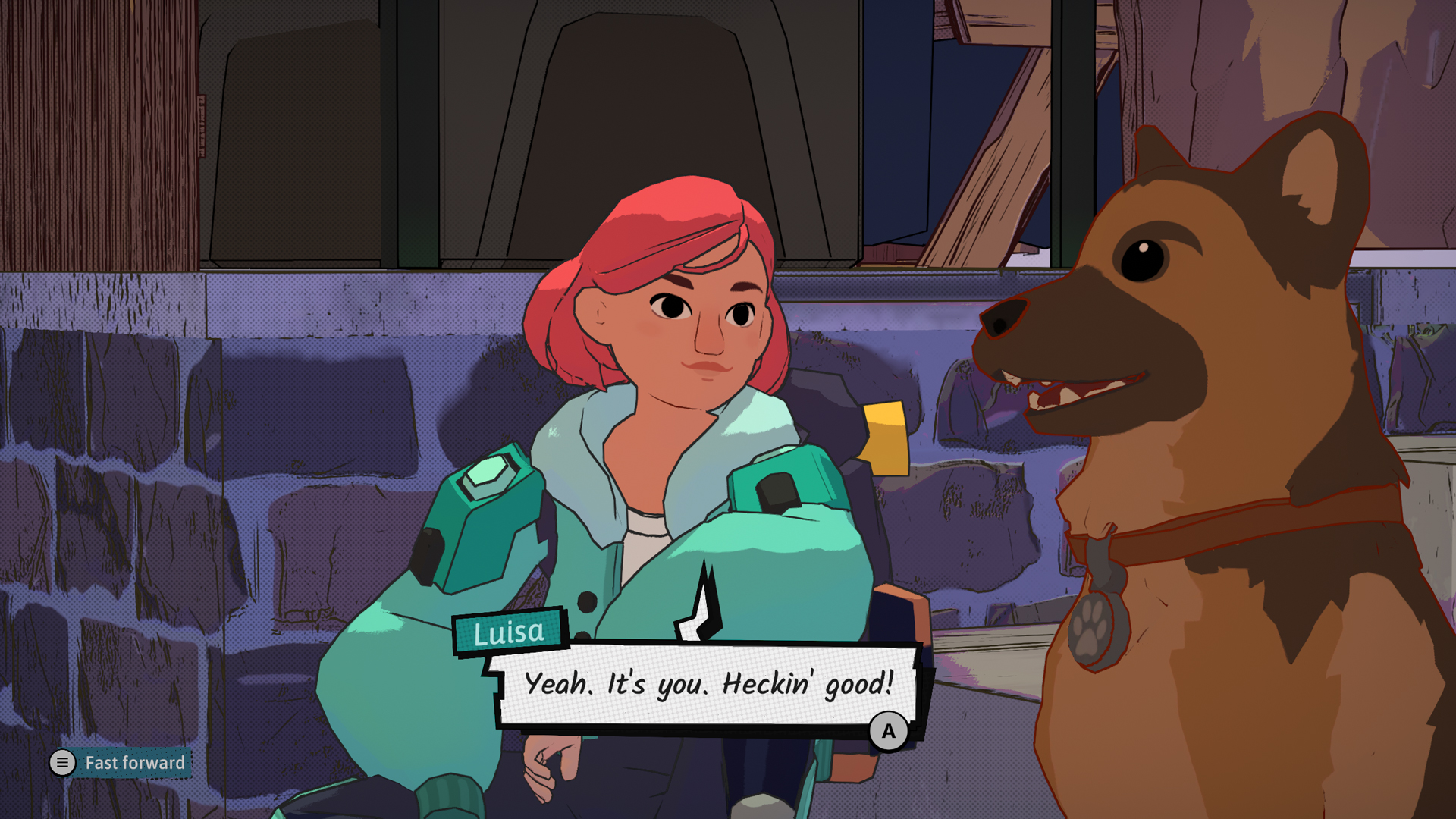
Around the world of Hinterberg, you'll come across little burning orbs to be collected, and these don't just replenish your health and magic slots, either. There are a few different types that, when offered to the right NPC, go toward improving Luisa as a fighter in different ways.
In battle, you'll collect monster parts to be exchanged for player enhancements with a group of dancing monster cosplayers. Other collectables allow a local scientist to reduce the size of the defense/offense-improving charms that you'll want to fit into the limited space on Luisa's backpack.
Alongside your duo of spells, charm collection, potions, and gear, Luisa has slots for devastating special moves called attack conduits. While your spells are restricted to certain areas, everything else can be swapped around to better suit your fighting style.
My main gripes when it comes to customization are that there aren't a great deal of attack conduits to choose from and you can't see the size of your charms when buying new ones. Also, changes to your gear aren't reflected as cool fashion choices. But as much as I revel in being an RPG fashionista, at least it forces me to focus on my defense rating.
One of the most fascinating ways to evolve Luisa is through her stats. There's a bit of twist on the usual RPG attributes, which are replaced with more holiday-specific stats like Relaxation, Amusement, Familiarity, and Renown. These can be increased through spending the day out in the open air at vista points, which is a fantastic feature I think more games should lean into. It supports the theme of finding space to commune with yourself in nature, and it gives you a chance to meditate between tense challenges and murder sprees.
The friends we made
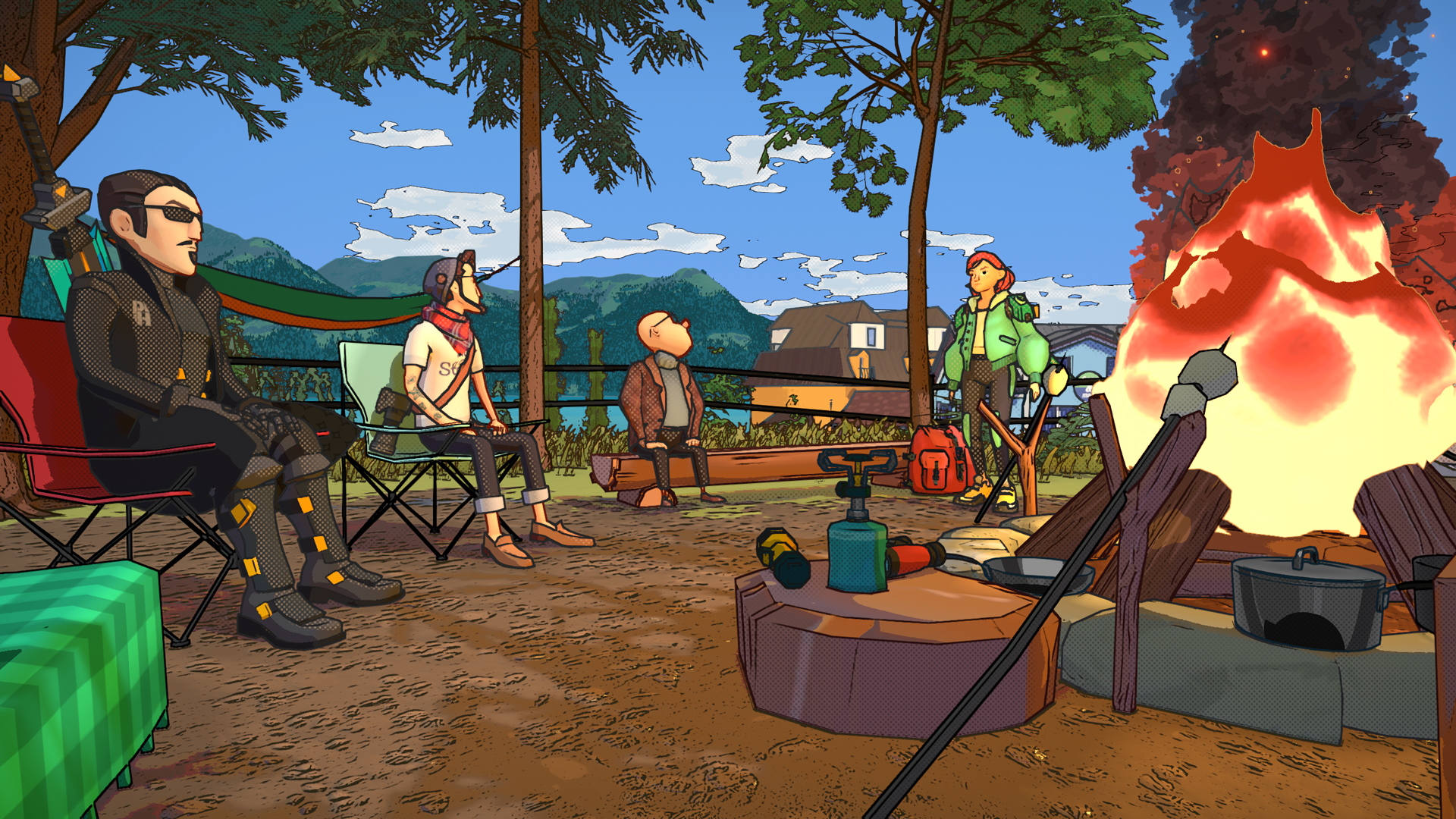
In the evenings, you can improve your stats by hanging with the locals and other slayers, too. You'll find a strategy will start to form around who best to spend your time with depending on which score needs improving. Each NPC provides different perks depending on your friendship level – anything from a unique charm that directly translates certain stats into physical/magical attack power, to a health slot upgrade or extra charm slots.
There's a very Kingdom Hearts-esque "the friends we made along the way" message underpinning everything, though without giving too much away I wish my choice of friends made more difference when the end-game boss battle rolled around. And while the friendship mechanics offer a unique progression incentive, they do feel a little transactional. It makes what is otherwise a relatively progressive game feel a tad superficial, but perhaps that's part of the message. For some it could undermine the overall message, though there's still a joy in getting to know each NPC as an individual. Every character feels like a living person with wants and needs, and their own story to tell.
There's so much to love about Dungeons of Hinterberg, from the characters and their little foibles to the fact that every step of a puzzle is either a perfect penny drop or a fascinating learning curve. The slow pace might be a slog for some, but it sets you up for some fantastic and fast-paced finales, where all those skills you've meticulously studied finally fall together for that rush of cerebral satisfaction that puzzle gamers crave.
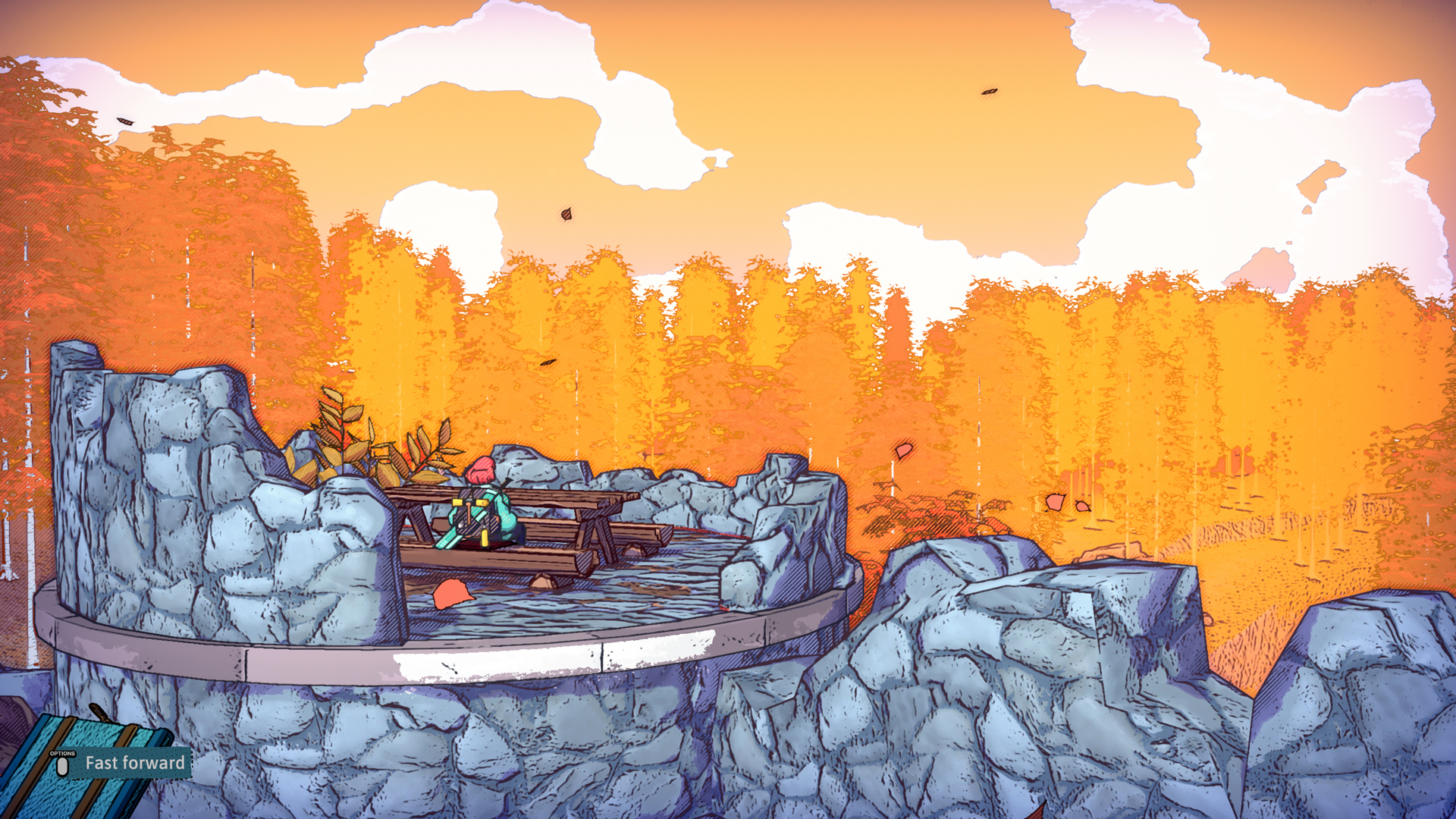
"It delivers a heavy message masterfully and with heaps of style."
Since Dungeons of Hinterberg is such a mishmash of genres, from it's JRPG roots to its almost arcade-like puzzler feel, it's not unreasonable to expect it to feel watered down in some instances, but the devs clearly know their stuff. They've managed to select elements from each genre that are both fun, and work to support the games overarching themes. And it's all tied together so seamlessly, with a clear and profound moral underlining everything.
Dungeons of Hinterberg is even subtle in its humor. It doesn't punch down, or try too hard to be cool. It lets the suave application of mechanics do the talking. Despite the relationship reward mechanic feeling a little materialistic, it delivers a heavy message masterfully and with heaps of style.
While some puzzle games can feel a little too on-rails, Dungeons of Hinterberg gives you enough freedom to follow whichever sub narratives take your fancy, adopt a preferred fighting style, and choose which order to tackle puzzles. And with the ability to slow down for a moment of tranquility at any point, it really does feel like a holiday… except you also kill stuff.
Dungeons of Hinterberg was reviewed on PC, with code provided by the publisher
More info
| Steam ID | 1983260 |

Katie is a freelance writer with over 5 years experience covering everything from tabletop RPGs, to video games and tech. Besides earning a Game Art and Design degree up to Masters level, she is a designer of board games, board game workshop facilitator, and an avid TTRPG Games Master - not to mention a former Hardware Writer over at PC Gamer.
